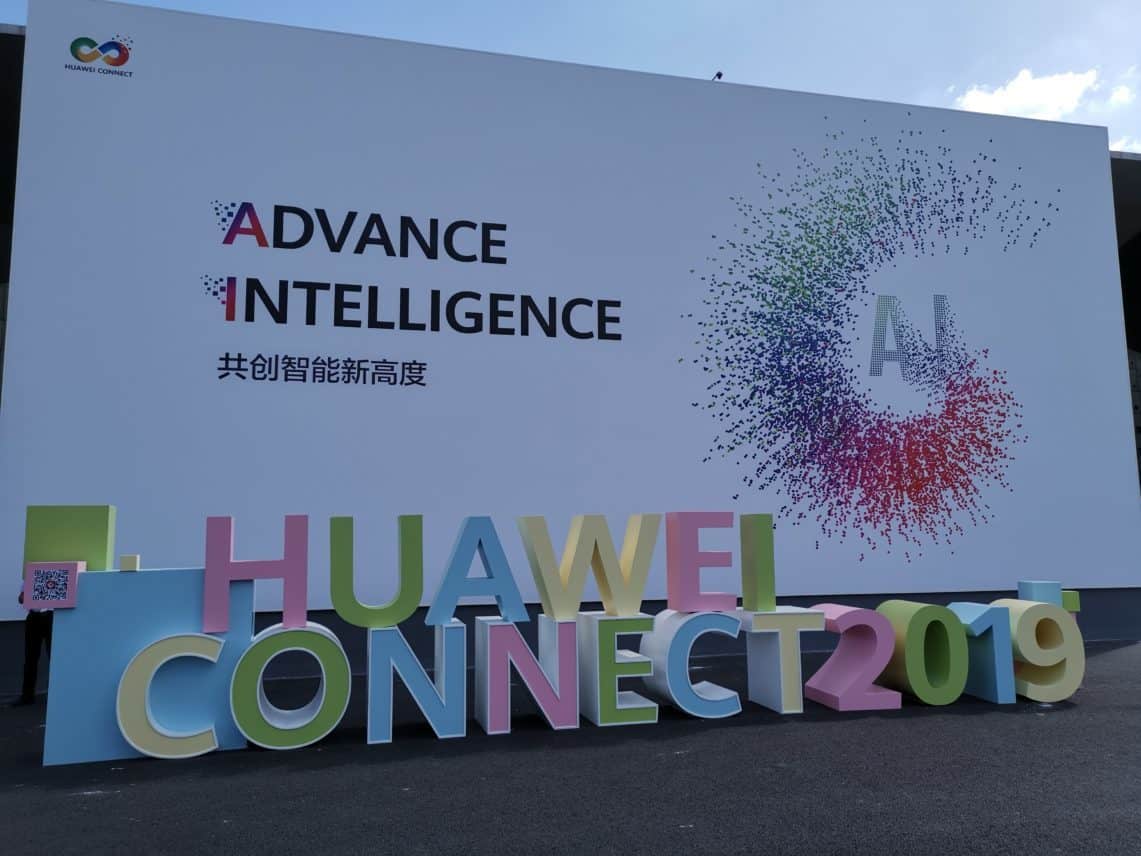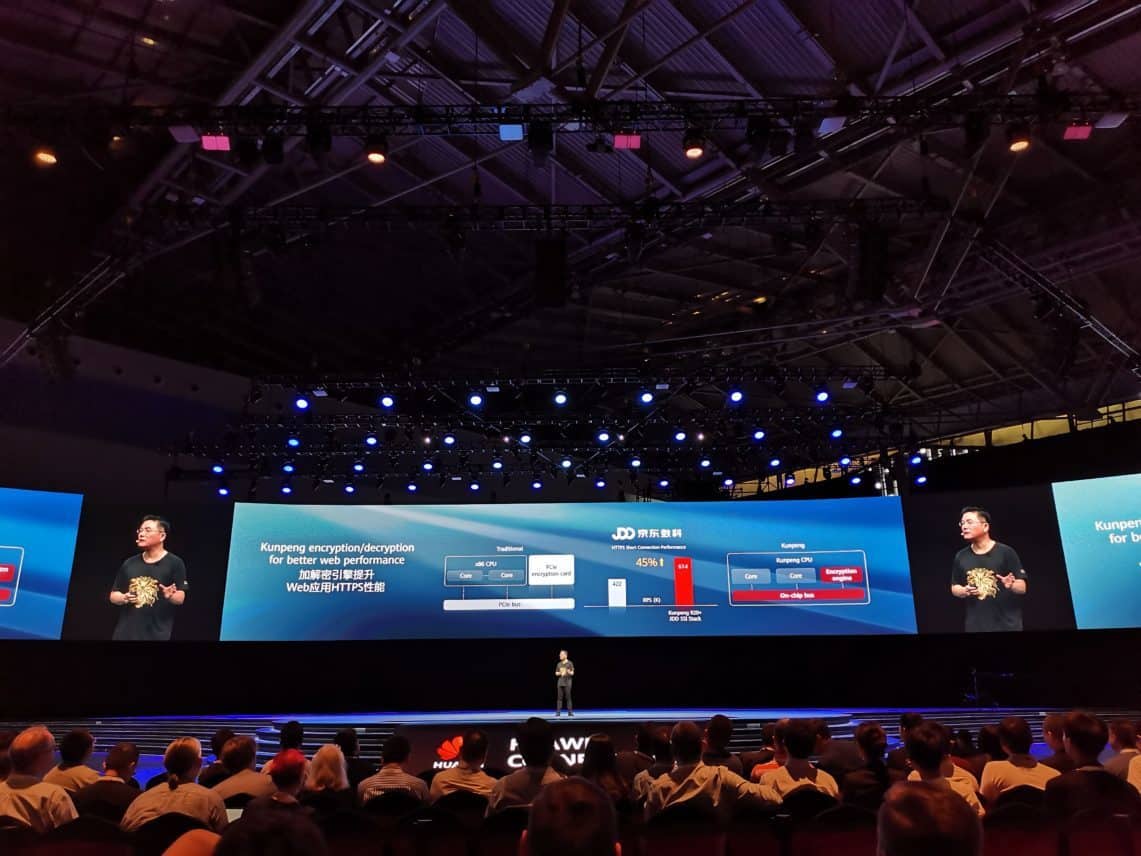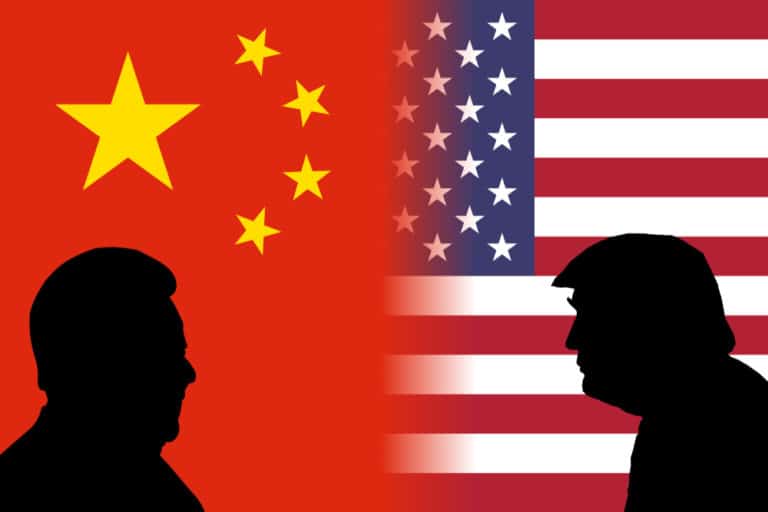What do you do when you become a pawn in a political game between the United States and China? Huawei is in that position and will have to deal with it. We were at Huawei Connect 2019 in Shanghai, to see how the company develops its enterprise portfolio and looks towards the future. Under political pressure, the event provided an interesting perspective.
We normally focus exclusively on IT and try to leave politics out of the equation as much as possible. In principle, politics have no effect on technology; however, we cannot ignore it during Huawei Connect 2019. Huawei is on the sidelines and is not allowed to play along with the rest of the market. This creates a strange situation, with many questions from journalists about the political situation. Time and again, the company calls on us not to worry about the future and that the development of new innovative products will continue.

When you ask questions about the possible consequences in a smaller setting, you rarely get a clear answer. What does happen regularly is that people show new technology that Huawei is working on, or technology that has just been finished.
Avoiding questions as a new Olympic sport
Whether Huawei is really not worried is of course easy to question, certainly on the basis of how we experienced the event in Shanghai. We can say, that of all the events we’ve been to in recent years, this was the one with the biggest palpable tension. At Huawei, they have almost turned avoiding difficult questions into a new Olympic discipline. After the keynote there was a Q&A session with all present media and analysts; this session lasted about 90 minutes, and Huawei managed to answer a grand total of only six questions. Formulating answers just took far too long.
Fortunately, there were smaller sessions, as well as an exhibition floor, where we simply let loose our barrage of questions. It was, of course, a matter of listening very carefully and reading between the lines. In the end, we did manage to form an image of the situation; we couldn’t get everything confirmed, but one thing is clear. Huawei is not going to shrink, cut anything, or bow to the US Administration of President Donald Trump.
Working hard instead of whining
What many companies would do in this situation, is to play the victim and try to force something out of that. Huawei does not. The company is currently not allowed to do (almost) any business with American companies. We don’t know how temporary this situation is, but it might just become definitive. Huawei considers this in a serious manner.
During the event we bought some books about Huawei, including a book about the CEO, Ren Zhengfei. In this book, interviews and statements by Ren are published. In the book he states that if it is really necessary, Huawei will shrink. If the market becomes too small or if it can no longer supply the products, there is no other option than to make the company smaller, reduce costs and, if necessary, lay off people. Huawei will then continue on a smaller scale. We believe that, if this happens, the trade war between the United States and China will be much more far-reaching or will escalate.
If the US does not allow American companies to sell components to Huawei, it will hurt those American companies.
“We don’t believe our survival is at risk. If the US does not allow American companies to sell components to Huawei, it will hurt those American companies. Huawei is the third largest buyer of chips in the world. Without us, those financial results of many U.S. companies will deteriorate and result in fluctuations in the stock market,” said Ren Zhengfei.
Huawei invests heavily in alternatives to US technology
Although Ren says that he is prepared to cut back on Huawei and that, as a private company, he can do so without problems, this is not yet the case. Huawei will continue to focus on the development of new innovative products, as only the United States and Australia seem to be willing to take far-reaching measures against the company to date.
This means that Huawei can continue to do business in the rest of the world, provided that it can supply products that meet the requirements. In concrete terms, this means that the company must also be able to supply high-quality products without American technology. Huawei’s plan A is to simply keep building products with American technology. This is simpler, cheaper and in line with market demand. However, if this is not possible due to restrictions imposed by the US government, Huawei will have to implement Plan B. The company will have to take the necessary measures to ensure that the products in question are manufactured in the best possible way. For the time being, this does not mean cutting back, but working even harder to develop alternatives to the American technology.
That seems almost impossible and, to be honest, we mocked them for it, until we went to Huawei Connect 2019. After our difficult questions, short demos, half answers and pointers in the right direction, we started to doubt our own cynicism. It’s still an extreme challenge and any public company would certainly not attempt it. However, Huawei does have the right papers and the ability to try it anyway. The reason we have started to doubt is not because the company is trying to replicate or replace American technology. Huawei thinks out-of-the-box: how can we redesign it, giving us a new competitive product? This means that Huawei could, ultimately, be a great danger to American technology companies. What if companies all over the world start buying Huawei equipment on a massive scale because it’s better, or as good, but cheaper?
The biggest challenge is coming up with alternatives to the Intel Xeon chips
In the consumer market, Huawei can no longer sell Android smartphones with a Google license. This is annoying for the company, but we suspect that an indirect way will be available for this soon enough. For example, by offering the user the option of installing the Google services, which means the end user enters into an agreement with Google, and Huawei does not. We suspect that Google will offer this in due course if there is no solution for the trade ban. From a financial point of view, the smartphone market is less important for Huawei.
The company focuses much more on the enterprise market. The company is a supplier of mobile networks and data center equipment. That’s where the big money is, and that’s where Huawei achieves their main turnover. For the mobile networks, Huawei can largely work with its own equipment without being dependent on American technology. Where this is not yet the case, products are being converted into a technology stack without American partners. For the data center portfolio, however, this is a completely different story.
Over the past 20 years, Intel has dominated the data center. Almost every server is powered by an Intel Xeon processor. The raw performance that Intel manages to achieve with these chips is excellent and difficult to match. After about ten years, AMD has another chip that can compete with the top, but that has taken a long time. For Huawei this is not an alternative, because AMD is an American company as well.
Huawei has been working on the Kunpeng-chip for quite some time. This was also a frequent topic of discussion during Huawei Connect 2019. However, the chip is starting to become an alternative to the Intel processors. If you put the two chips next to each other, you could conclude that Huawei is miles behind. The raw performance of the Intel processor is much higher than that of the Kunpeng. According to some benchmarks, the Intel Xeon is twice as fast, even. However, if you look at efficiency, power consumption, costs and chip features, the comparison becomes a lot more interesting. We will explain this later, in a separate blog.

For the enterprise business, Huawei also needs network equipment, motherboards, flash storage and memory. Huawei’s network division can supply the network equipment itself. Motherboards, flash storage and working memory are available from non-American companies. For example, Samsung could supply all flash storage and memory. In terms of software, Huawei can no longer supply Windows licenses, but these can be obtained through Microsoft’s partner channel. In data centers, however, Linux is used much more, and there is plenty of choice in this respect.
So, the biggest challenge remains the processor, but they are working hard on it. Last year, half a billion was invested in the Kunpeng chip alone. We suspect that Huawei is once again investing a huge amount of money this year, and that this will not be without success. However, let it be clear that the company would never even have made that investment if it had not been for a trade ban.
The U.S. government, led by Trump, is fighting a tough trade war, but we think that this will only harm U.S. tech giants in the long run. It forces Huawei to invest in alternative technologies, to replace the American products. This is a very difficult task, but Huawei has the means, the people and the knowledge to find a solution. If Huawei is no longer dependent on American companies, it will cost the American economy a lot of money. Especially if the trade ban would be lifted by an eventual new president.
What about espionage?
Should we even want these Huawei products? Aren’t they full of spy chips? The American government has long been arguing that Huawei is able to spy for the Chinese government, that they could do this through backdoors in Huawei’s equipment. They also claim that according to Chinese law, Huawei is obliged to hand over data to the Chinese government, should the government request that.
These are all allegations from the American government against China and Huawei. The big question, of course, is what is true about these kinds of statements. Huawei itself has made it clear on several occasions that it has never spied for the Chinese government and will never do so. According to Huawei, the Chinese government has never asked for this, and if they do, the company will oppose it in every possible way.
Regarding the presence of backdoors in Huawei’s products: bluntly put, this is bullshit according to the company. The company does not build any backdoors in its products. According to Huawei, this is even impossible, because of the way in which the organization is organized. Even if an Huawei employee wants it, it is almost impossible because of all the checks that have been put in place. As a result of these allegations, Huawei has opened its doors worldwide, and companies and governments wishing to do business with the company are welcome to view and verify all source codes.
Australia and the United States have so far been the only ones to really ban Huawei. Evidence has never been provided and other countries, with which extensive secret information is shared, have decided after investigation not to ban Huawei equipment. For example, Huawei is welcome in the United Kingdom and Germany.
Furthermore, the whole argument from the United States can be called quite hypocritical. American law states that American companies must transfer all data, nationally and internationally, should the American government so request. Chinese law is no different from American law in this respect, and for many large American companies this law is a thorn in the side.
Finally, it is good to reflect on how the Internet has changed over the past five years. Before 2014, the entire internet was open and virtually unencrypted. Now, there is massive and omnipresent encryption. Data centers, social platforms, messenger services, blogs, everything is encrypted. And why? Because the American government eavesdropped on everyone and their mother, they dug up fibre-optic cables between Google data centers to eavesdrop on them, they put backdoors in (among other things) Cisco equipment, and they basically recorded everyone’s online activity. Edward Snowden is still on the run for publicizing these practices. The Americans even eavesdropped on allied politicians. Ultimately, the Americans should be the last to say anything about espionage. If you want to keep the Chinese out, you have to keep the Americans out too. That’s just going to be very difficult.
